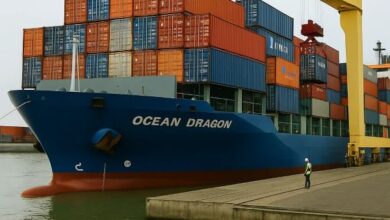Samsung challenges bigger rivals, invests $116 billion in non-memory chips
Samsung Electronics Co Ltd is set to challenge rivals in mobile processing chips by investing $116 billion in non-memory chips through 2030.
This is in a bid to cut its reliance on the volatile memory chip market and develop chips to power self-driving cars and AI-enabled devices. The plan also underscores the South Korean firm’s ambition to best bigger rivals – Taiwan’s TSMC in contract chip manufacturing and San Diego-based Qualcomm Inc in mobile processing chips – as the memory chip market contracts sharply after years of an unprecedented boom.
Global semiconductor makers are in a race to produce powerful chips to support new technologies such as fifth-generation (5G) mobile networks, connected cars and artificial intelligence (AI).
READ ALSO:Samsung Retrieving All Galaxy Fold Samples, Postpones Worldwide Launch
In March, U.S. chip supplier Nvidia Corp agreed to buy Israeli chip designer Mellanox Technologies Ltd for $6.8 billion, beating rival Intel Corp in a deal that would help Nvidia boost its data center and AI businesses.
Samsung, which has expanded its chip business largely through organic investment, said on Wednesday its 133 trillion won ($116 billion) spending will comprise of 73 trillion won for domestic R&D and 60 trillion won for production infrastructure.
“The investment plan is expected to help the company to reach its goal of becoming the world leader in not only memory semiconductors but also logic chips by 2030,” it said in a statement.
Although Samsung does not disclose the breakdown of its investment in the semiconductor division, analysts said more than half of its total capital expenditure usually goes to memory chips.
In 2018, Samsung spent 29.4 trillion won in capital expenditure and four-fifths of the budget went to the semiconductor division where memory chips generated 96 percent of the operation’s profit.
“Samsung appears to be aggressive on the non-memory side given the size of the spending, but it is too early to tell whether this long-term plan will work out because it depends a lot on the demand situation and market conditions,” said senior analyst Song Myung-sup at HI Investment & Securities.
The aggressive investment plan in semiconductors also comes as Samsung’s smartphone business, once its biggest earnings generator, struggles to revive growth.
The world’s top smartphone maker decided this week to delay the launch of its widely anticipated foldable phone after several reviewers discovered problems with the display.
Samsung also said the chip investment will create 15,000 jobs.
The firm’s heir apparent Jay Y. Lee, awaiting a Supreme Court decision on his bribery conviction, has been under pressure from the government to help create more jobs, as Asia’s fourth-largest economy is battling rising numbers of jobless college graduates partly due to slowing economic growth.
South Korea, the world’s biggest producer of memory chips thanks to Samsung and domestic rival SK Hynix Inc, also wants to reduce its reliance on memory chip sales to smoothen volatile export trends.
With a 19 percent market share, Samsung is a distant second player in the foundry – or contract chip manufacturing – sector, trailing market champion Taiwan Semiconductor Manufacturing Co Ltd (TSMC), according to industry tracker TrendForce.
Samsung also produces processor chips for mobile phones in a market dominated by the likes of Qualcomm and Intel.
Shares in Samsung closed down 1 percent on Wednesday, broadly in line with the wider market’s 0.9 percent fall.
Yetunde Adegoke












